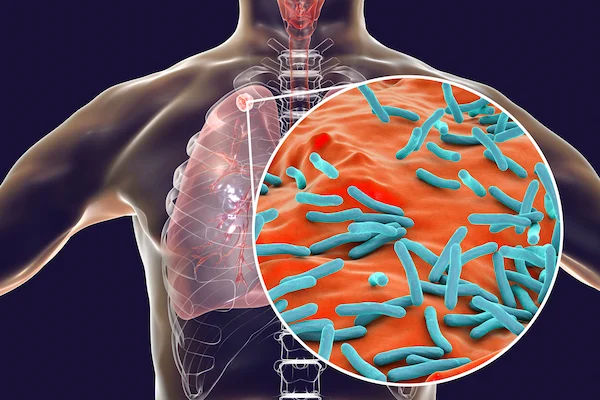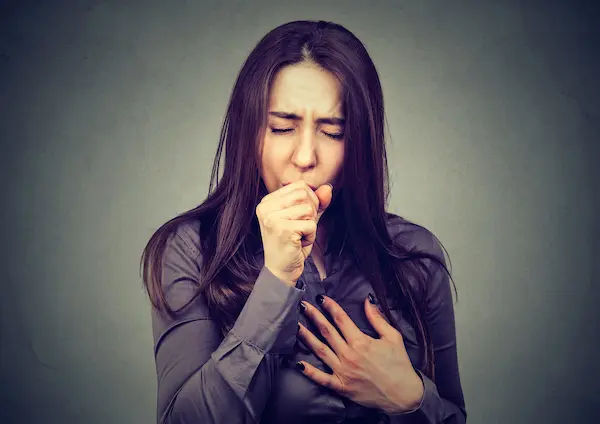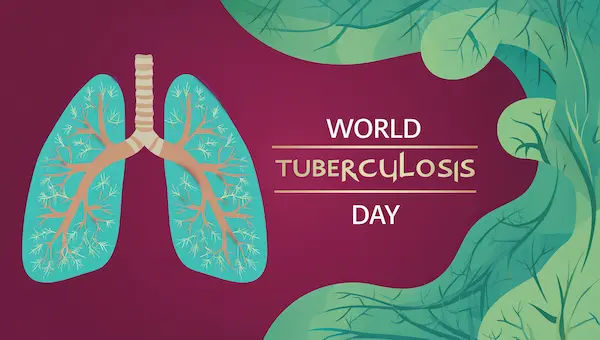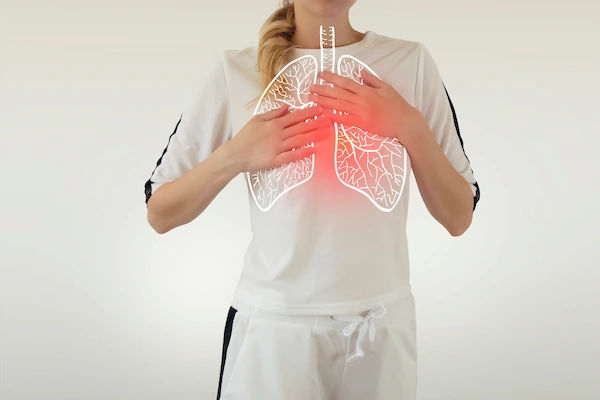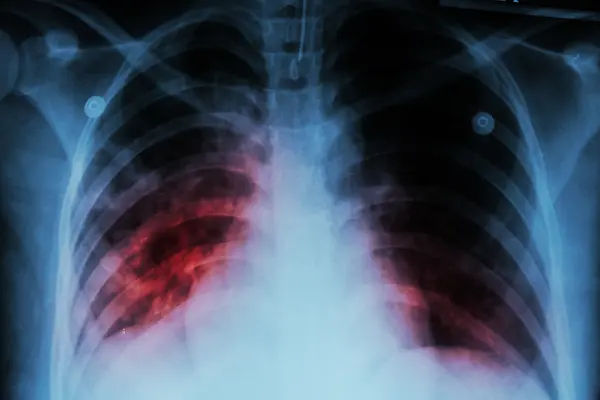Drug Resistant Tuberculosis and Its Diagnosis
Know about drug-resistant tuberculosis, what it is, drug-resistant TB, symptoms, causes and diagnosis. Learn about the management and treatment of drug-resistant TB.

Written by Dr. Md Yusuf Shareef
Reviewed by Dr. Shaik Abdul Kalam MD (Physician)
Last updated on 28th Aug, 2025

Introduction
Tuberculosis (TB) is a serious bacterial infection that primarily affects the lungs but can also impact other parts of the body. While TB is treatable with antibiotics, some strains have become resistant to the drugs commonly used to fight them. This is known as Drug-Resistant Tuberculosis (DR-TB), a major global health concern.
If you or a loved one has been diagnosed with TB or is experiencing symptoms, understanding drug-resistant TB and its diagnosis is crucial for effective treatment. This article will explain what DR-TB is, its symptoms, causes, diagnosis, and how to manage it.
What Is Drug-Resistant Tuberculosis (DR-TB)?
Drug-resistant TB occurs when the bacteria causing tuberculosis do not respond to the standard antibiotics used for treatment. There are two main types:
- Multidrug-Resistant TB (MDR-TB) – Resistant to at least two of the most powerful first-line TB drugs (Isoniazid and Rifampicin).
- Extensively Drug-Resistant TB (XDR-TB) – Resistant to even more drugs, including second-line treatments, making it harder to cure.
When TB bacteria become resistant to medications, treatment becomes longer, more complicated, and sometimes less effective.
Consult a Pulmonologist for Personalised Advice
Symptoms of Drug-Resistant TB
The symptoms of DR-TB are similar to regular TB but may persist or worsen despite treatment. Common signs include:
- Persistent cough (lasting 2 weeks or more)
- Coughing up blood or mucus
- Chest pain
- Fatigue and weakness
- Fever and night sweats
- Unintentional weight loss
- Loss of appetite
If you experience these symptoms and have previously been treated for TB, it’s important to seek medical advice immediately.
Causes of Drug-Resistant TB
Drug resistance in TB develops due to:
- Incomplete or Incorrect Treatment – Skipping doses, stopping medication early, or not following the prescribed
regimen allows bacteria to survive and mutate. - Poor-Quality Medications – Using counterfeit or substandard drugs can contribute to resistance.
- Person-to-Person Transmission – DR-TB can spread through the air, just like regular TB, meaning people can get infected with a resistant strain directly.
Diagnosis of Drug-Resistant TB
Early and accurate diagnosis is essential for effective treatment. Doctors use several tests to confirm DR-TB:
1. Sputum Tests
Smear Microscopy – Checks for TB bacteria in sputum (mucus coughed up from the lungs).
Culture Test – Grows bacteria in a lab to identify drug resistance (takes weeks).
2. Molecular Tests (Faster & More Accurate)
- GeneXpert MTB/RIF – Detects TB and Rifampicin resistance within hours.
- Line Probe Assay (LPA) – Identifies resistance to multiple drugs.
3. Drug Susceptibility Testing (DST)
- Determines which drugs the TB bacteria are resistant to, helping doctors choose the right treatment.
If you suspect TB symptoms, consult a doctor immediately. Early testing can prevent complications and further spread.
Managing and Treating Drug-Resistant TB
DR-TB treatment is more challenging than regular TB, but it is still possible to recover with proper care.
1. Treatment Options
- Longer Treatment Duration (18-24 months) – Requires a combination of stronger antibiotics.
- Second-Line Drugs – Used when first-line drugs fail, but they may have more side effects.
- Newer Drugs (Bedaquiline, Delamanid) – More effective with fewer side effects for resistant strains.
2. Adhering to Medication
- Taking medicines exactly as prescribed is crucial to prevent further resistance.
- Directly Observed Therapy (DOT) – A healthcare worker ensures patients take their medication correctly.
3. Lifestyle and Dietary Support
- Nutritious Diet – High-protein foods, fruits, and vegetables help strengthen immunity.
- Avoid Smoking & Alcohol – These weaken the lungs and immune system.
- Rest & Hydration – Helps the body fight infection.
4. Emotional & Social Support
- DR-TB treatment can be physically and emotionally draining. Counselling and support groups can help.
Preventing Drug-Resistant TB
Prevention is always better than a cure. Here’s how you can reduce the risk:
- Complete TB Treatment – Never stop medication early, even if you feel better.
- Follow Doctor’s Advice – Take medicines at the right time and dosage.
- Maintain Good Hygiene – Cover your mouth when coughing, and ensure proper ventilation.
- Get Tested if Exposed – If someone close to you has TB, get tested early.
When to See a Doctor?
If you or someone you know has:
- A persistent cough for more than 2 weeks
- Been in contact with a TB patient
- Previously had TB, but symptoms have returned
Consult a doctor immediately. Early diagnosis and treatment can save lives.
Final Thoughts
Drug-resistant TB is a serious condition, but with the right diagnosis, treatment, and support, recovery is possible. If you suspect TB symptoms, don’t delay; seek medical help immediately. Stay informed, follow treatment strictly, and take care of your health.
Consult a Pulmonologist for Personalised Advice
Consult a Pulmonologist for Personalised Advice

Dr Abhishek Verma
Pulmonology Respiratory Medicine Specialist
5 Years • MD (Respiratory Medicine), PDCC (Interventional Pulmonology) Alumni SGPGIMS & KGMU Lucknow
Lucknow
Apollomedics Super Speciality Hospital, Lucknow
(50+ Patients)

Dr. S Mallikarjun Rao
Pulmonology Respiratory Medicine Specialist
22 Years • MBBS, MD (Pul.), FCCP
Hyderguda
Apollo Hospitals Hyderguda, Hyderguda
(75+ Patients)

Dr. Mahavir Bagrecha
Pulmonology Respiratory Medicine Specialist
14 Years • MBBS, MD (PULMONOLOGY)
Pune
Swash Chest and Diabetes Clinic, Pune
(50+ Patients)

Dr Vishwa Vijeth K.
Pulmonology Respiratory Medicine Specialist
8 Years • MBBS, MD ( Respiratory Medicine)
Bangalore
Apollo Clinic Bellandur, Bangalore
Dr Arjunsa Satpute
Pulmonology Respiratory Medicine Specialist
14 Years • MBBS, MD Pulmomary Medicine , FCCP (USA)
Bangalore
Apollo Clinic Bellandur, Bangalore
Consult a Pulmonologist for Personalised Advice

Dr Abhishek Verma
Pulmonology Respiratory Medicine Specialist
5 Years • MD (Respiratory Medicine), PDCC (Interventional Pulmonology) Alumni SGPGIMS & KGMU Lucknow
Lucknow
Apollomedics Super Speciality Hospital, Lucknow
(50+ Patients)

Dr. S Mallikarjun Rao
Pulmonology Respiratory Medicine Specialist
22 Years • MBBS, MD (Pul.), FCCP
Hyderguda
Apollo Hospitals Hyderguda, Hyderguda
(75+ Patients)

Dr. Mahavir Bagrecha
Pulmonology Respiratory Medicine Specialist
14 Years • MBBS, MD (PULMONOLOGY)
Pune
Swash Chest and Diabetes Clinic, Pune
(50+ Patients)

Dr Vishwa Vijeth K.
Pulmonology Respiratory Medicine Specialist
8 Years • MBBS, MD ( Respiratory Medicine)
Bangalore
Apollo Clinic Bellandur, Bangalore
Dr Arjunsa Satpute
Pulmonology Respiratory Medicine Specialist
14 Years • MBBS, MD Pulmomary Medicine , FCCP (USA)
Bangalore
Apollo Clinic Bellandur, Bangalore
